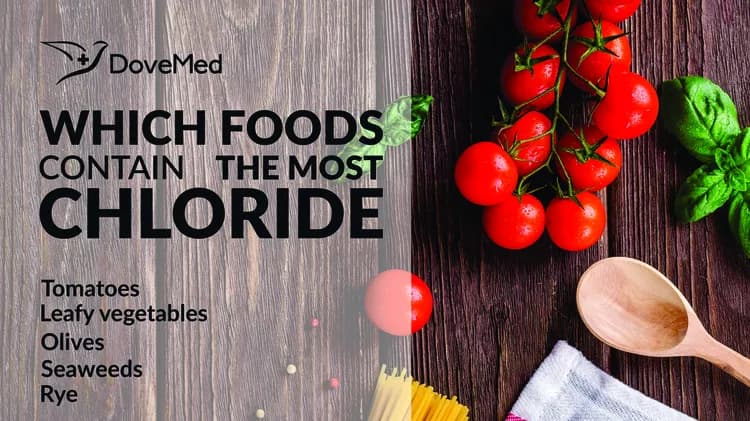Chloride is a component of table salt or sea salt, which is also known as sodium chloride (NaCl). It is an important body electrolyte found in blood. Chloride is responsible for keeping fluid balance within cells and maintaining pH levels, pressure, and volume of blood. It is also indispensable to gastric juices (as part of hydrochloric acid), which aid in digestion in the stomach. Chloride, potassium, and sodium are vital minerals that are essential for the conduction of electrical impulses through the nervous system.
Chloride imbalances may occur due to excessive diarrhea and vomiting, causing a loss of electrolytes. Since excess salt is excreted through urine, a heavy salt intake can damage the kidneys. A condition of deficient chloride levels does not normally occur in adults. High chloride or low chloride blood levels can be indicative of a host of disorders, such as metabolic disorders, kidney disease, certain respiratory conditions, congestive heart failure, etc. that may be life-threatening. Hence, it is very important to maintain optimum chloride levels in the body.
The American Food and Nutrition Board recommends a daily intake of 2.3 grams of chloride for an adult to make up for the lost salt through sweat. The minimum required amount of daily chloride intake for an average adult is between 0.75-0.90 grams, of which, over 0.50 grams is lost per day. We get most of our chloride through salt (either table salt or sea salt) that is used during the preparation of food. However, an excess intake of salt or sodium chloride may lead to high blood pressure, severely affecting the cardiovascular system and the kidneys.
Foods that contain high chloride levels include the following:
- Tomatoes: Although the chloride content of a tomato is high, there is a reduced risk of heart disease with this fruit, due to the presence of high amounts of lycopene (a naturally occurring pigment)
- Leafy vegetables such as lettuce and celery
- Olives: The olive is a small tree that is found primarily in the Mediterranean region and parts of Europe and China. The fruit of this tree is used to extract olive oil, which is used in many culinary preparations.
- Seaweeds like kelp and dulse, which are seawater-dwelling marine plants (algae)
- Rye: It is a grain grass related to the wheat and barley family. Rye is used to prepare alcoholic beverages like whiskey, beer, and vodka. In addition, rye flour is used to make rye bread.
Many processed foods and snacks contain a high sodium levels, thus implying that the chloride levels are also high. These include salted nuts, chips, sauces, canned food items, butter, salted meat and fish, pickles, burgers, sandwiches, cheese, tomato ketchup, bacon and ham. Nevertheless, despite the above, it is always recommended to take the advice of a suitable healthcare professional before bringing any alteration to your regular food habits and diet.
Related Articles
Test Your Knowledge
Asked by users
Related Centers
Related Specialties
Related Physicians
Related Procedures
Related Resources
Join DoveHubs
and connect with fellow professionals


0 Comments
Please log in to post a comment.